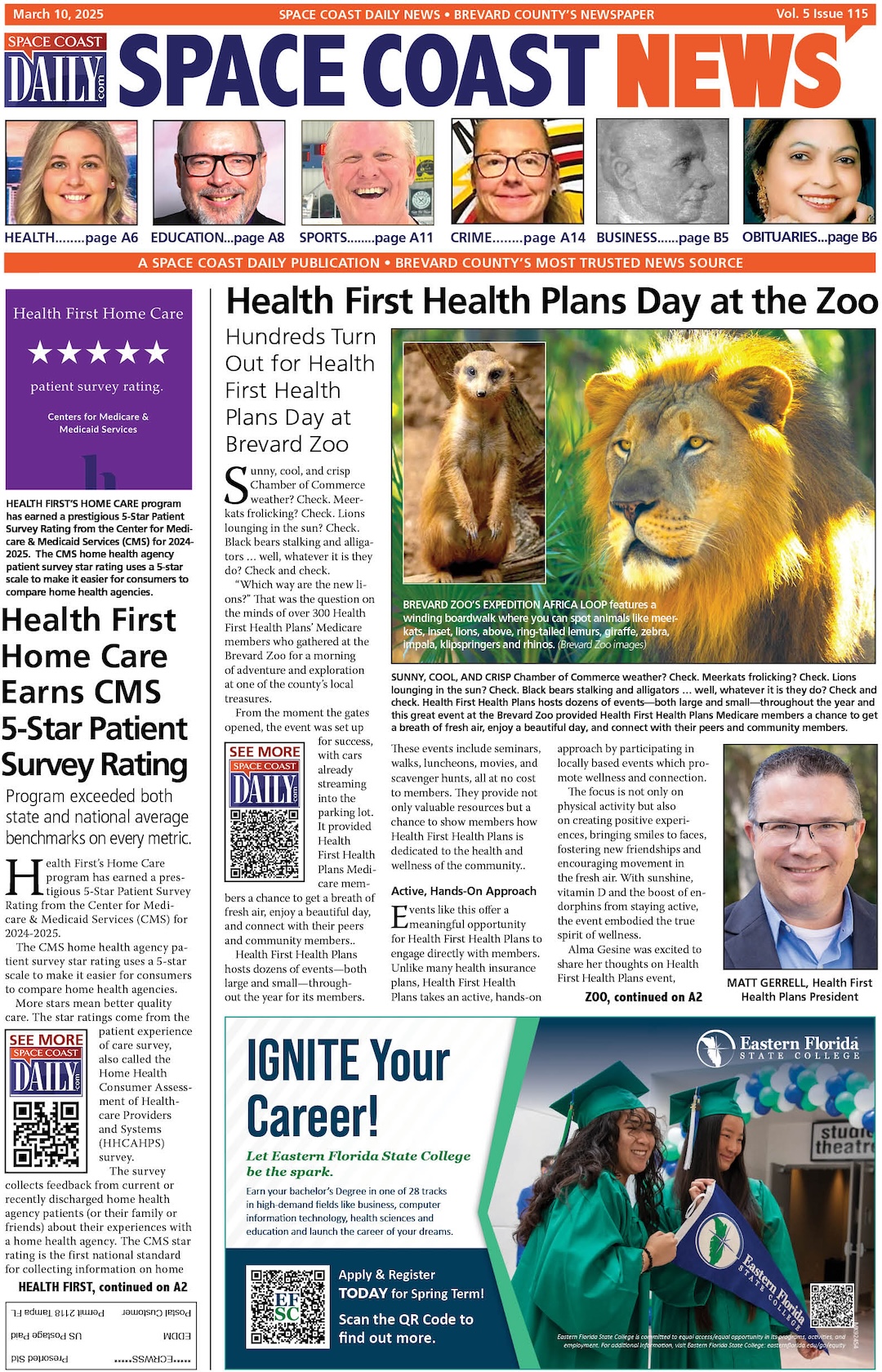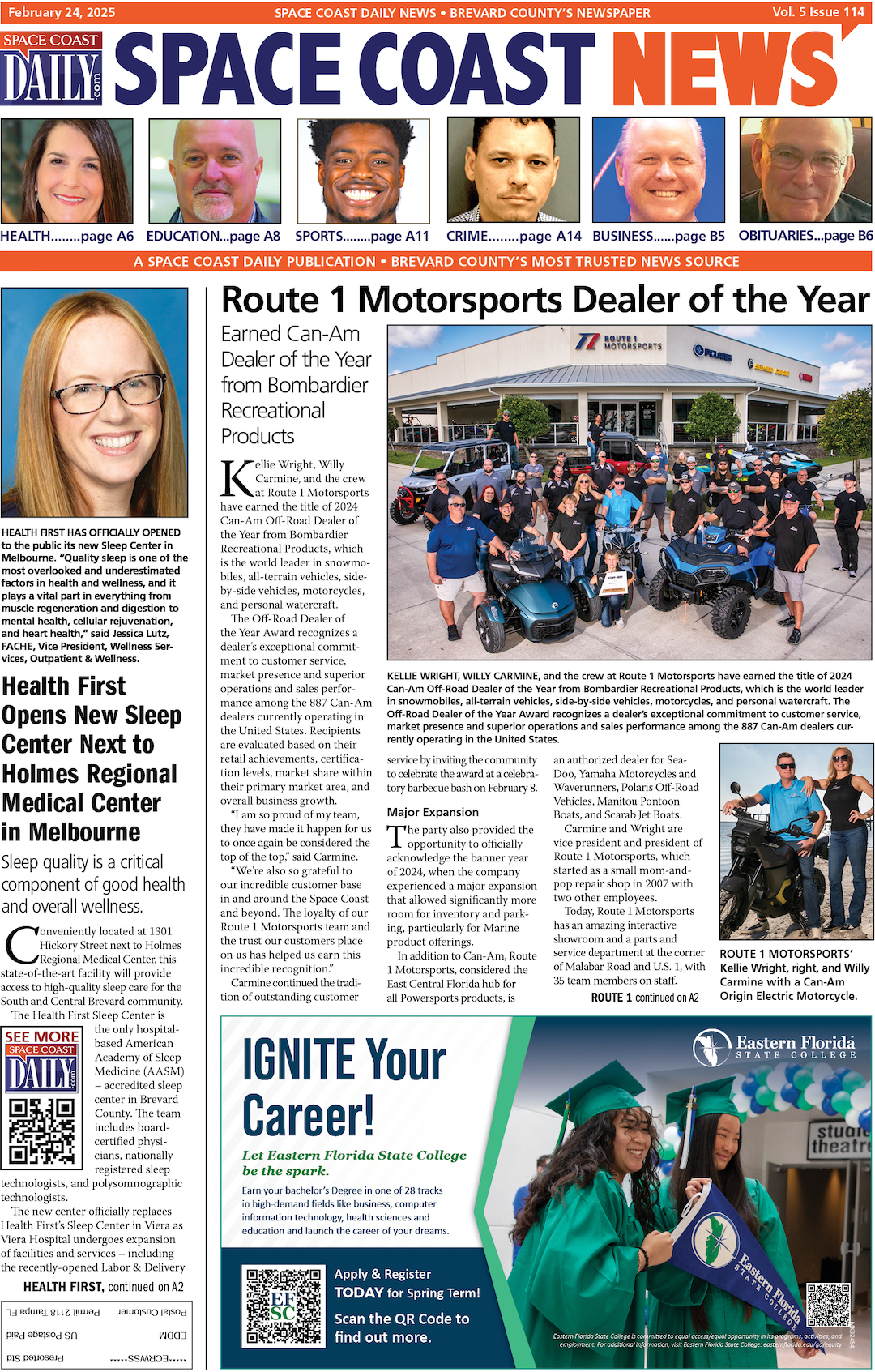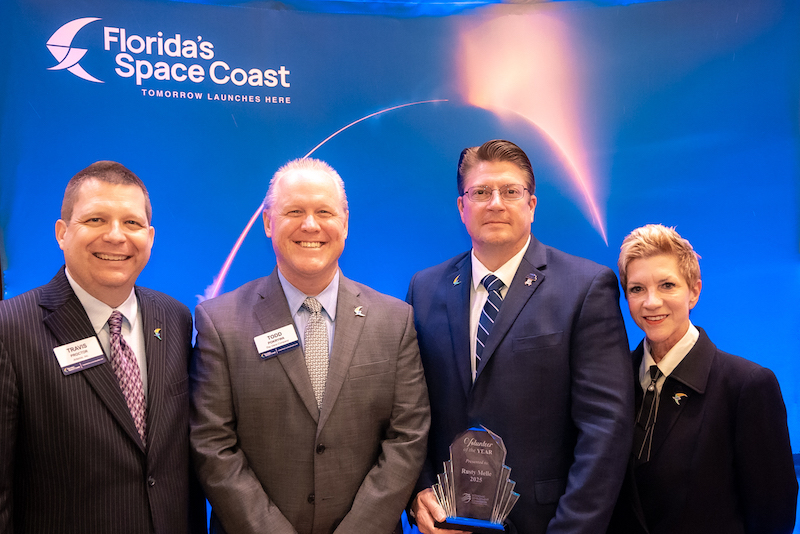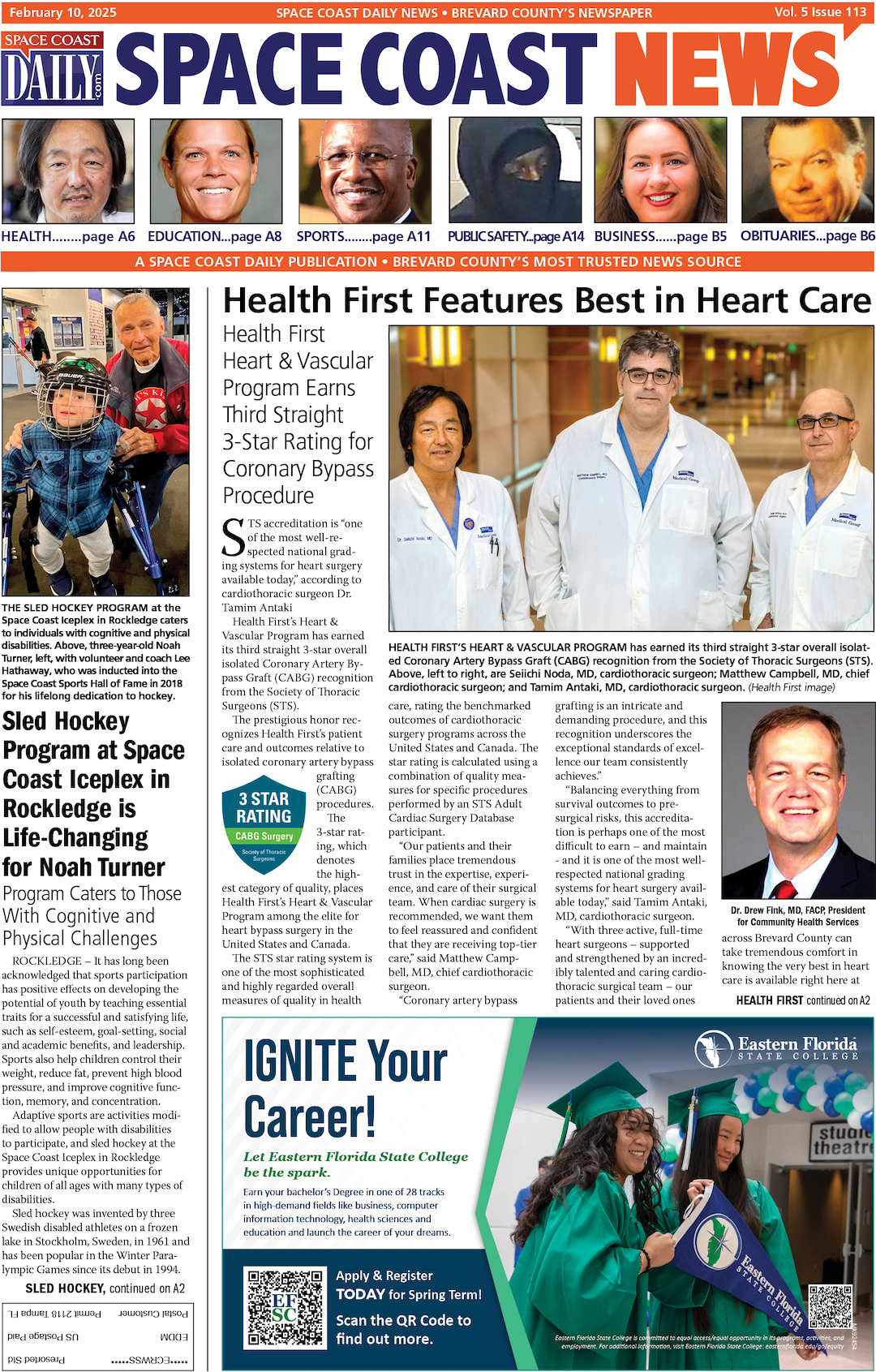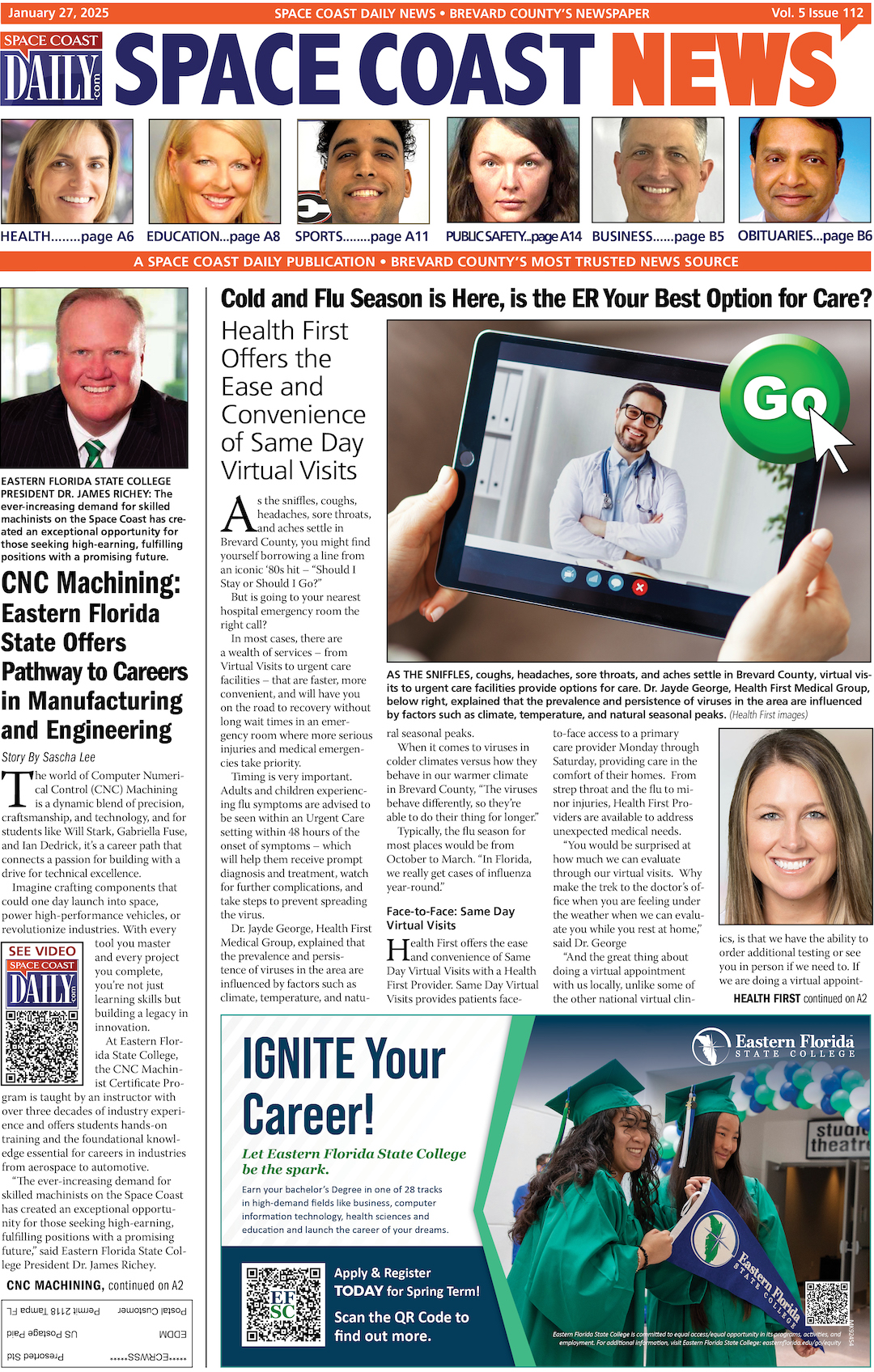Unlocking Retail Success: The Critical Role of Final Mile Delivery in E-Commerce
By Space Coast Daily // September 11, 2024

The term “final mile delivery” describes the last segment of the supply chain, which involves moving products from a warehouse or distribution center to the front door of the ultimate customer.
This step, which is the last in the delivery process and involves actually delivering the product to the consumer, is very important. Final mile delivery, which includes delivery speed, accuracy, and quality, is where the customer’s experience is directly impacted in the context of e-commerce. Efficient last-mile delivery can have a big impact on a retailer’s success and is crucial for guaranteeing customer pleasure.
Imagine placing an online order for a product and anxiously awaiting its delivery, only to be met with miscommunication, a damaged parcel, or delays. No matter how flawless the product is or how easy the purchasing process is, a customer’s experience can be made or broken by this last step in the process. The last delivery leg matters in the fast-paced world of e-commerce, where speed and convenience are critical.
In this case, final mile delivery becomes important. It’s the last interaction the consumer has with the store, and it decides whether the latter walks out happy or disappointed with what they bought. With e-commerce growing, it’s becoming more and more crucial for businesses trying to stand out in a crowded market to comprehend final mile delivery.
How does e-commerce benefit from the services of final mile delivery? Why does it matter for retailers?
The retail industry has undergone a major change thanks to e-commerce, and final mile delivery is now an essential part of this change. Here are some reasons why final mile delivery is important to merchants and how it helps e-commerce:
- Enhanced Customer Experience: In the e-commerce world, the final mile delivery is often the only physical interaction a customer has with the retailer. A smooth, timely, and accurate delivery can enhance customer satisfaction and foster brand loyalty. On the other hand, delays, inaccuracies, or damaged goods can lead to negative reviews and diminished trust.
- Increased Competitiveness: With the rise of online shopping giants like Amazon, retailers must offer competitive delivery options to stay relevant. Fast and reliable final mile delivery can be a significant differentiator. Retailers who invest in efficient final mile logistics can offer faster delivery times, better tracking, and more flexible delivery options, which can attract and retain customers.
- Operational Efficiency: Effective final mile delivery can streamline operations by optimizing delivery routes, reducing costs, and improving inventory management. Retailers who integrate advanced technologies, such as route optimization and real-time tracking, can enhance efficiency and reduce operational expenses.
- Flexibility and Adaptability: E-commerce retailers must adapt to changing consumer expectations, such as same-day or next-day delivery. Final mile delivery services that offer flexibility, such as scheduled delivery times and convenient drop-off options, can better meet these demands and improve overall service levels.
Top Reasons Why Final Mile Delivery is the Key to Retail Success
The importance of final mile delivery in the success of e-commerce retail cannot be overstated. Here are the top reasons why:
- Customer Satisfaction: Retailers have the opportunity to make a lasting impression on customers or let them down with their last-mile deliveries. Precise, on-time deliveries and excellent customer service can lead to favorable reviews and repeat business. However, poor delivery experiences might result in dissatisfied clients and lower sales.
- Brand Reputation: Retailers with consistently high-quality final-mile delivery services improve their reputation. Positive delivery experiences can strengthen a company’s reputation by increasing client loyalty and trust. On the flip side, if there are ongoing delivery issues, a retailer’s reputation could deteriorate and customers would start shopping at competitors.
- Revenue Growth: Efficient last-mile delivery has the potential to increase revenue growth by reducing cart abandonment rates and increasing conversion rates. When customers have faith in the reliability and quickness of the delivery, they are more likely to complete their orders and return for more.
- Cost Management: Even though last-mile delivery can be costly, with proper phase management, costs can be reduced and managed. Retailers who streamline delivery routes, use technology, and properly manage resources can reduce costs and increase profitability.
- Competitive Advantage: In the crowded e-commerce sector, providing outstanding last-mile delivery can help a company differentiate itself from competitors. Businesses can gain an advantage and attract customers by providing services like flexible delivery windows, real-time tracking, and speedy returns.
What are the Common Challenges in Final Mile Delivery Business and What are the Solutions?
Despite its importance, final-mile delivery comes with its own set of challenges. Here are some common issues and their potential solutions:
-
Challenge: High Costs
- Solution: By designing the most effective routes, route optimization software can assist in lowering delivery costs. Cutting costs can also be achieved by collaborating with third-party logistics providers (3PLs) that give economies of scale.
-
Challenge: Delivery Delays
- Solution: Enhanced consumer communication can be achieved by offering real-time tracking and updates. The possibility of delays can also be decreased by making solid logistics network maintenance and dependable technology investments.
-
Challenge: Last-Minute Changes
- Solution: Give clients a range of delivery options and make it simple for them to change or postpone their delivery selections. Putting in place a responsive customer support system is another efficient way to handle last-minute adjustments.
-
Challenge: Handling Returns
- Solution: Provide simple return options and unambiguous instructions to streamline the returns process. A simplified reverse logistics system can be put in place to handle returns economically and effectively.
-
Challenge: Managing Delivery Accuracy
- Solution: To guarantee precise delivery, make use of barcode scanning and cutting-edge tracking systems. Maintaining high standards requires regular quality checks and training of delivery staff.
Frequently Asked Questions:
1. How long is the final mile delivery?
The distance between the distribution center and the delivery address, the delivery method selected, and the effectiveness of the logistics provider are some of the variables that affect how long a final mile delivery takes. Final mile delivery typically takes anywhere from a few hours to many days. For a shorter period of time, a lot of online merchants provide choices for expedited delivery.
2. What is the last-mile delivery stage?
The last leg of the delivery process, which involves moving items from a warehouse or distribution center to the customer’s door, is known as the “last mile delivery stage.” It is the moment when the product is delivered to the final user and is essential to guaranteeing client happiness.
3. Why is the last mile delivery important?
Because it immediately impacts the customer’s experience with the retailer, the last mile delivery is crucial. Since this is the last exchange, fulfilling the commitments made during the buying procedure depends on it. Effective and dependable last-mile delivery has a positive effect on overall business profitability, brand loyalty, and customer happiness.
Conclusion
In the age of e-commerce, final mile delivery has emerged as an integral factor in retail success. It bridges the gap between the retailer and the customer, impacting satisfaction, brand reputation, and operational efficiency. By understanding the benefits, addressing common challenges, and investing in effective final-mile delivery strategies, retailers can enhance their competitive edge and drive growth. As consumer expectations continue to evolve, prioritizing final mile delivery will be key to achieving lasting success in the dynamic world of online retail.





